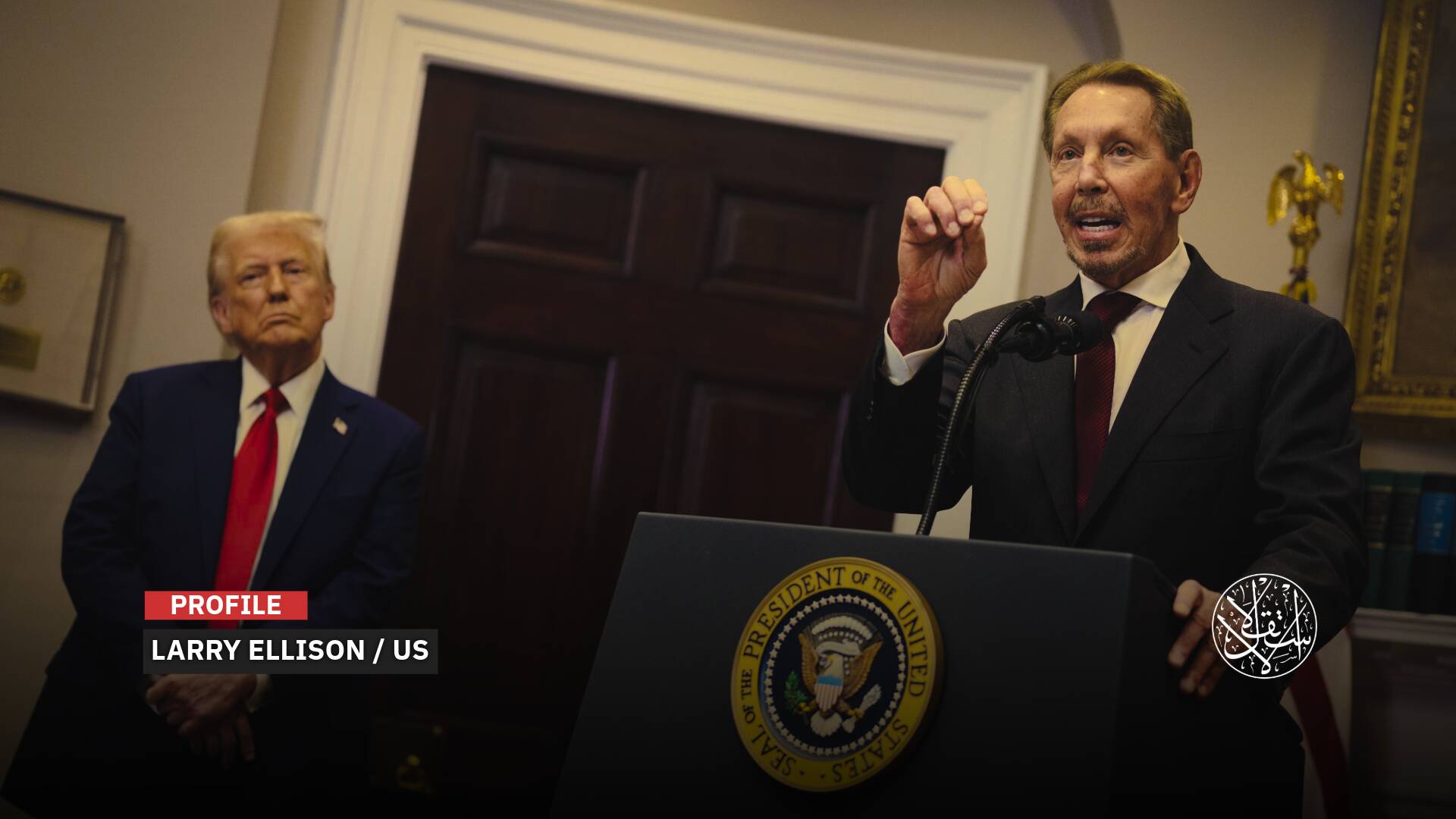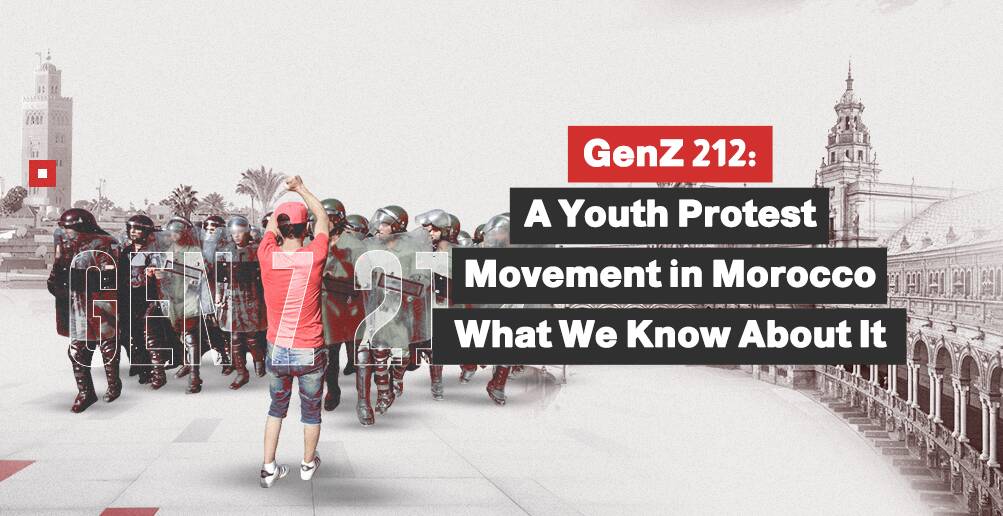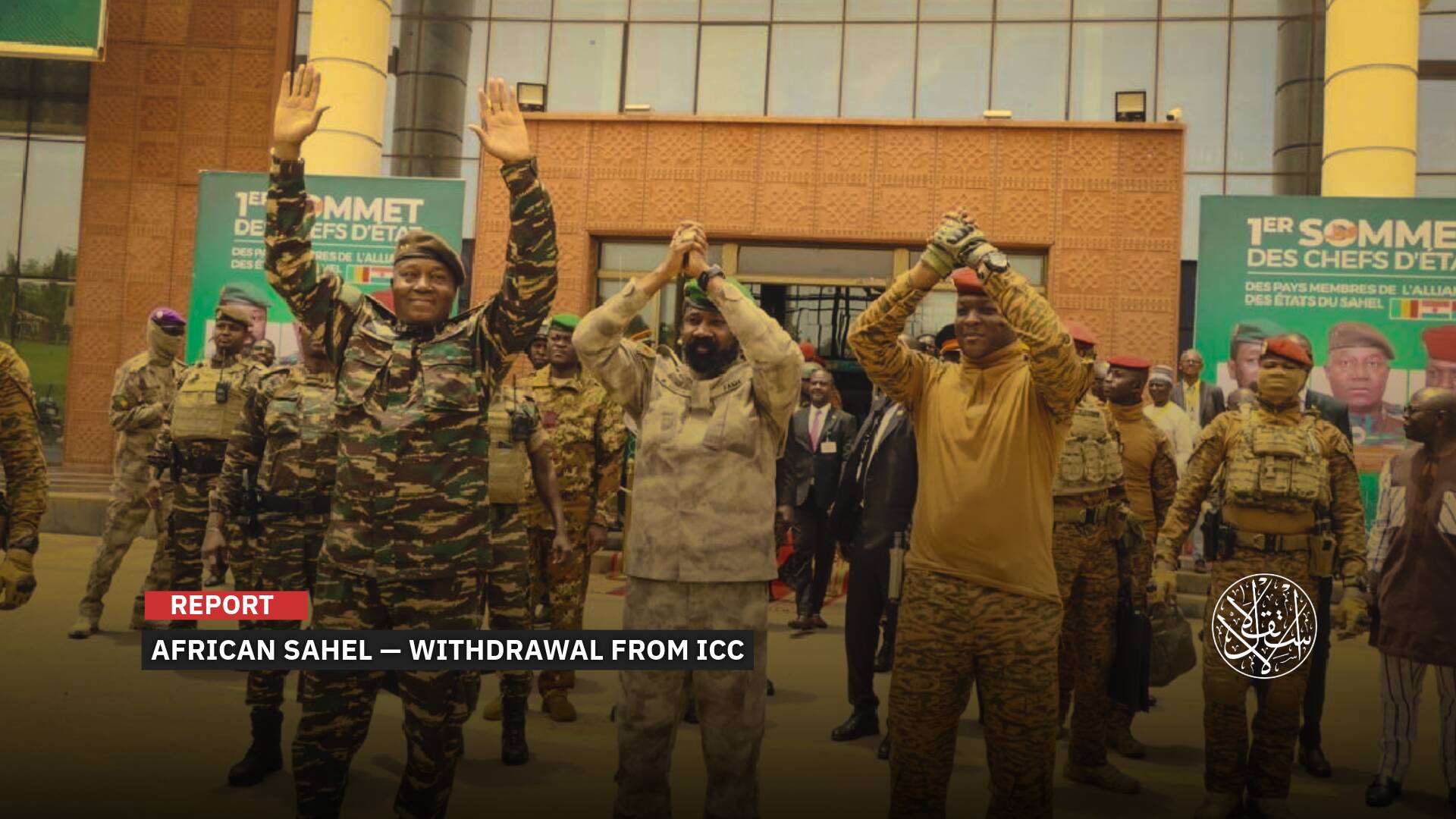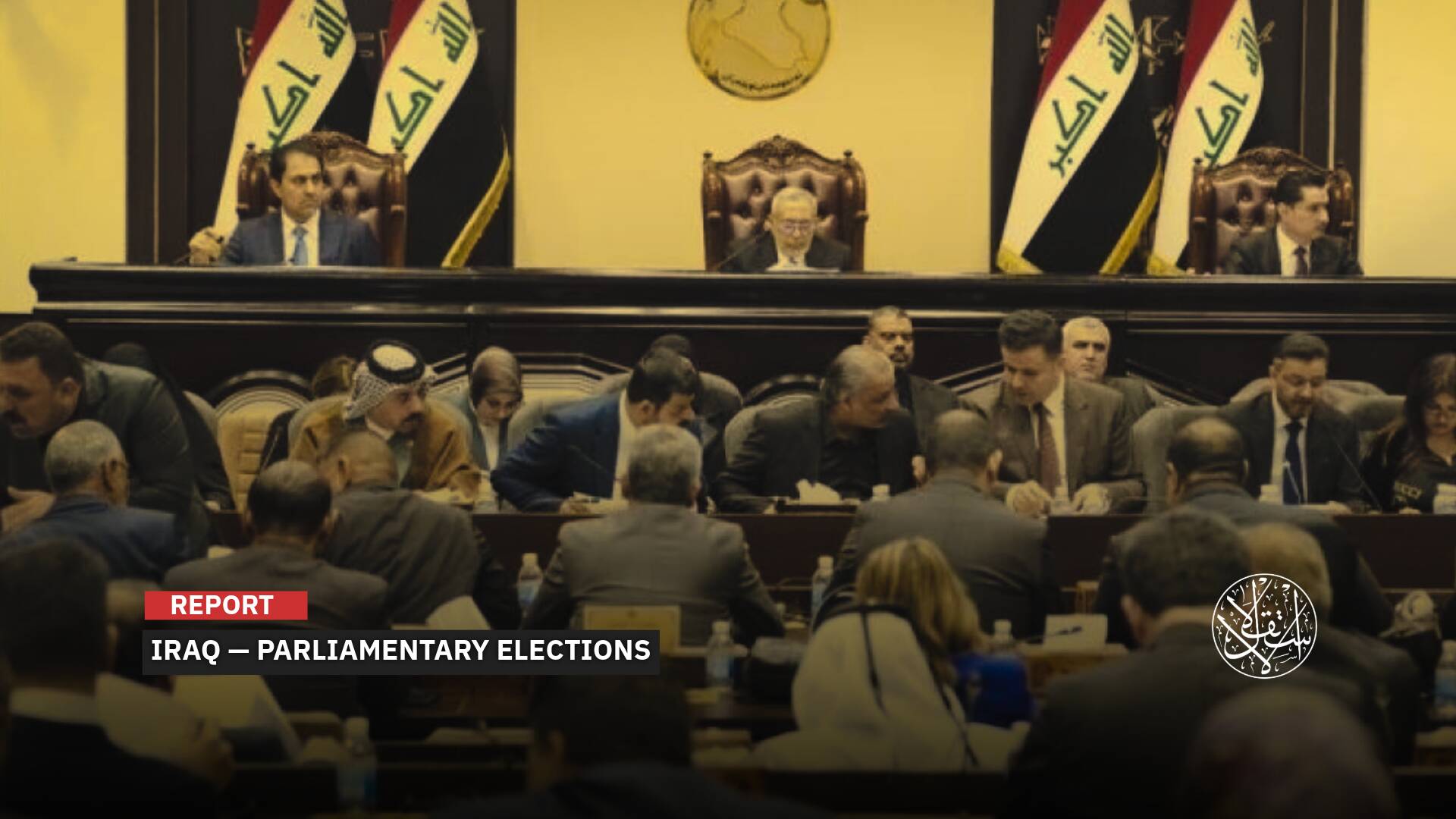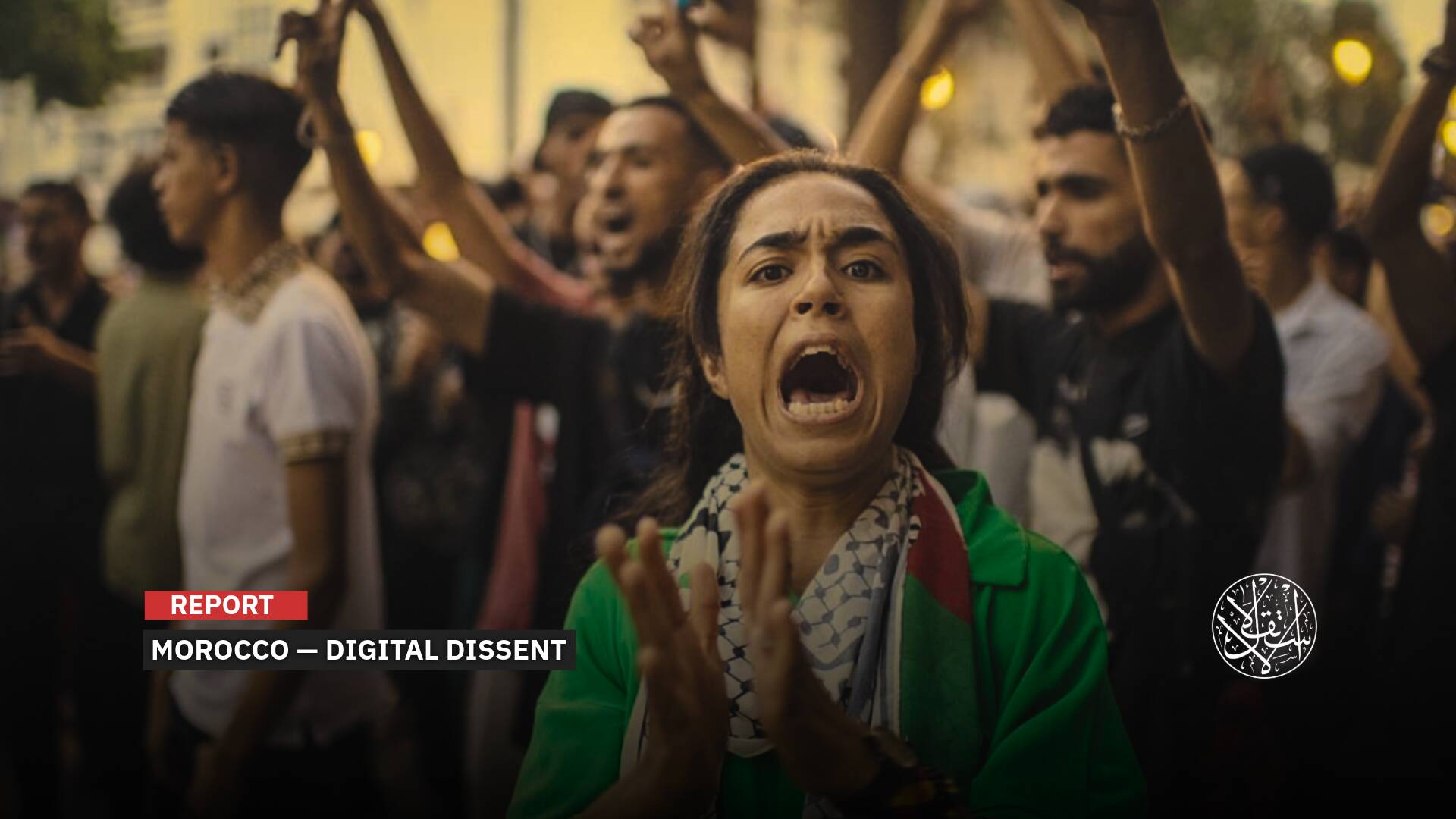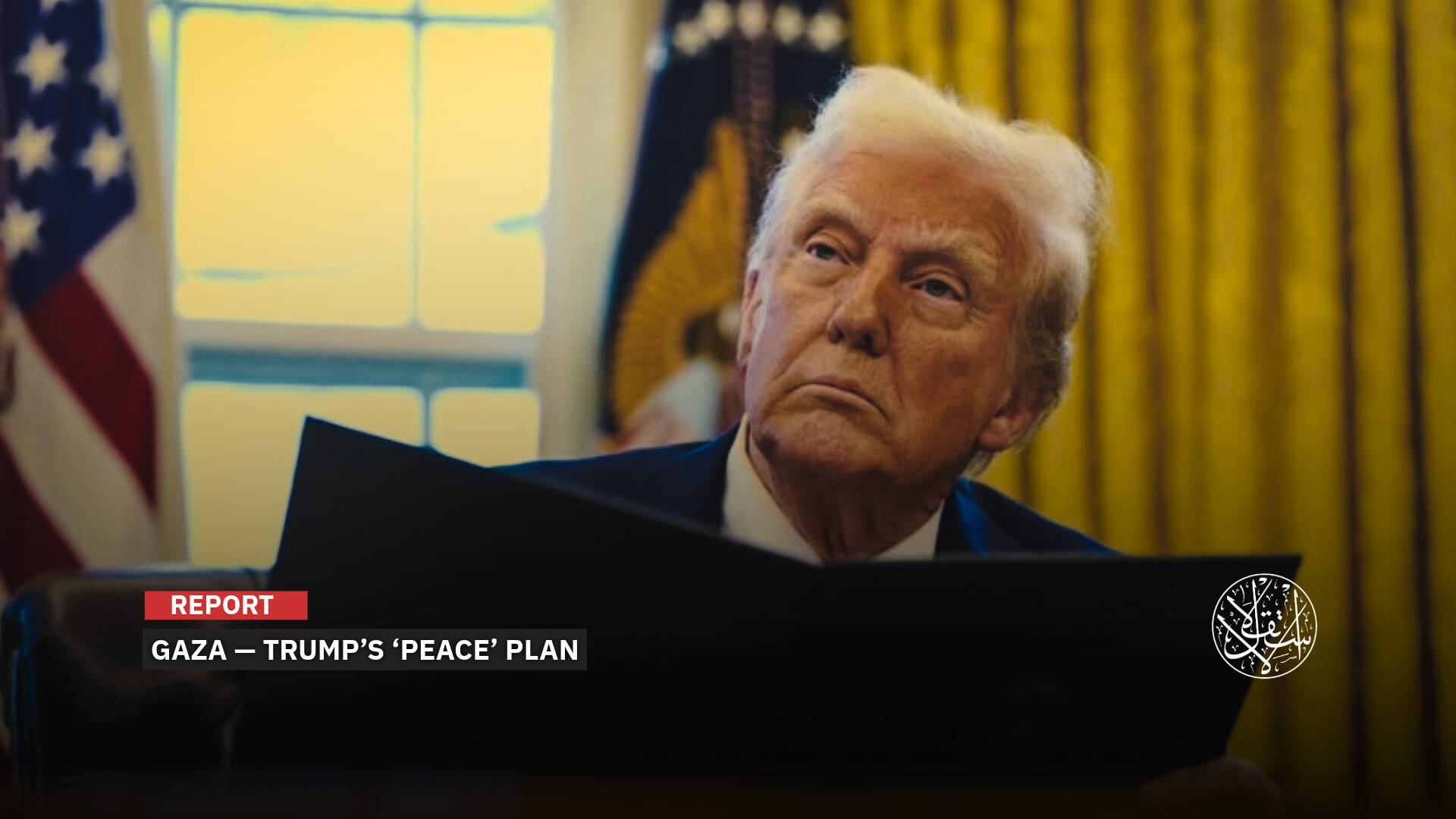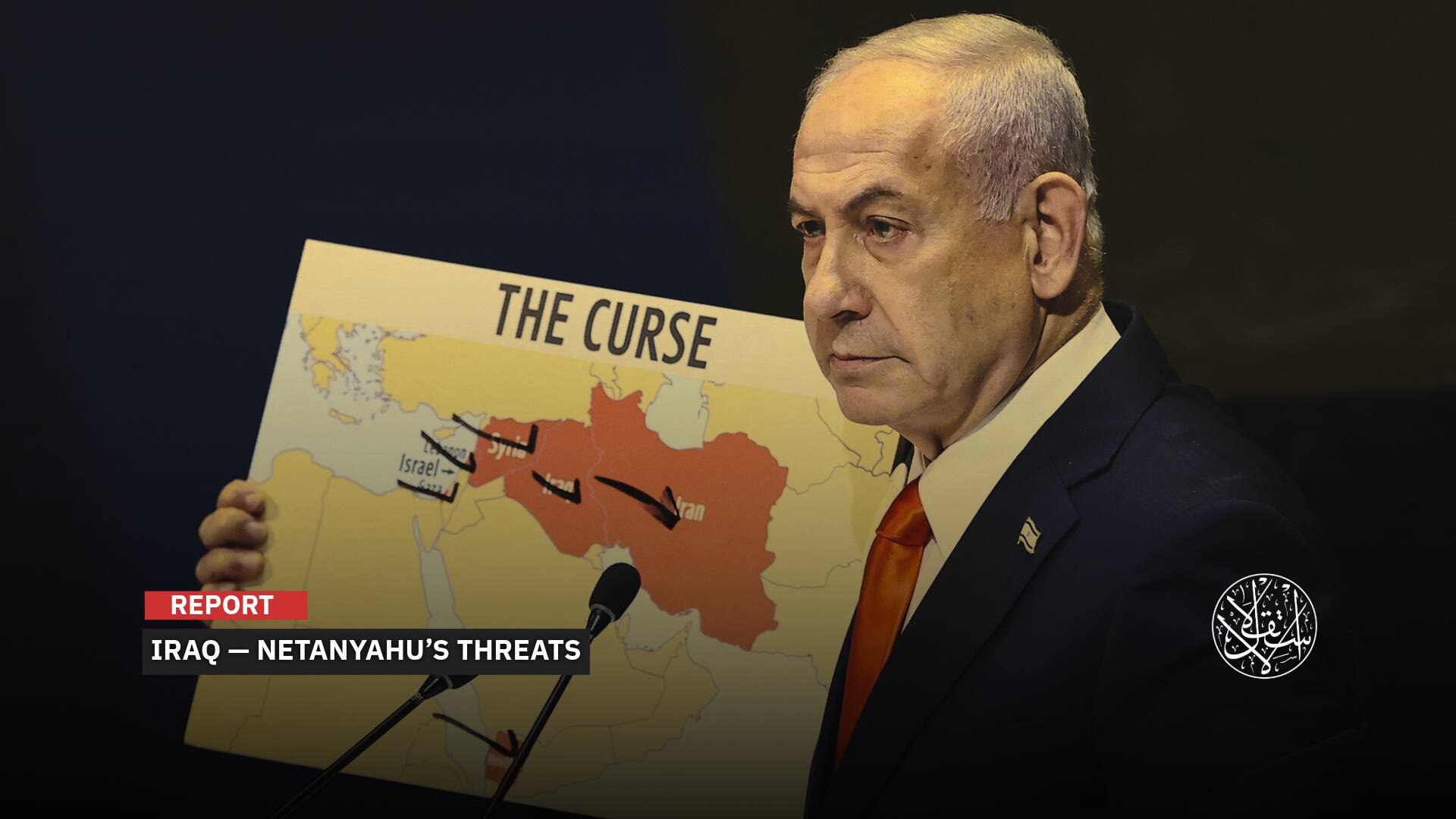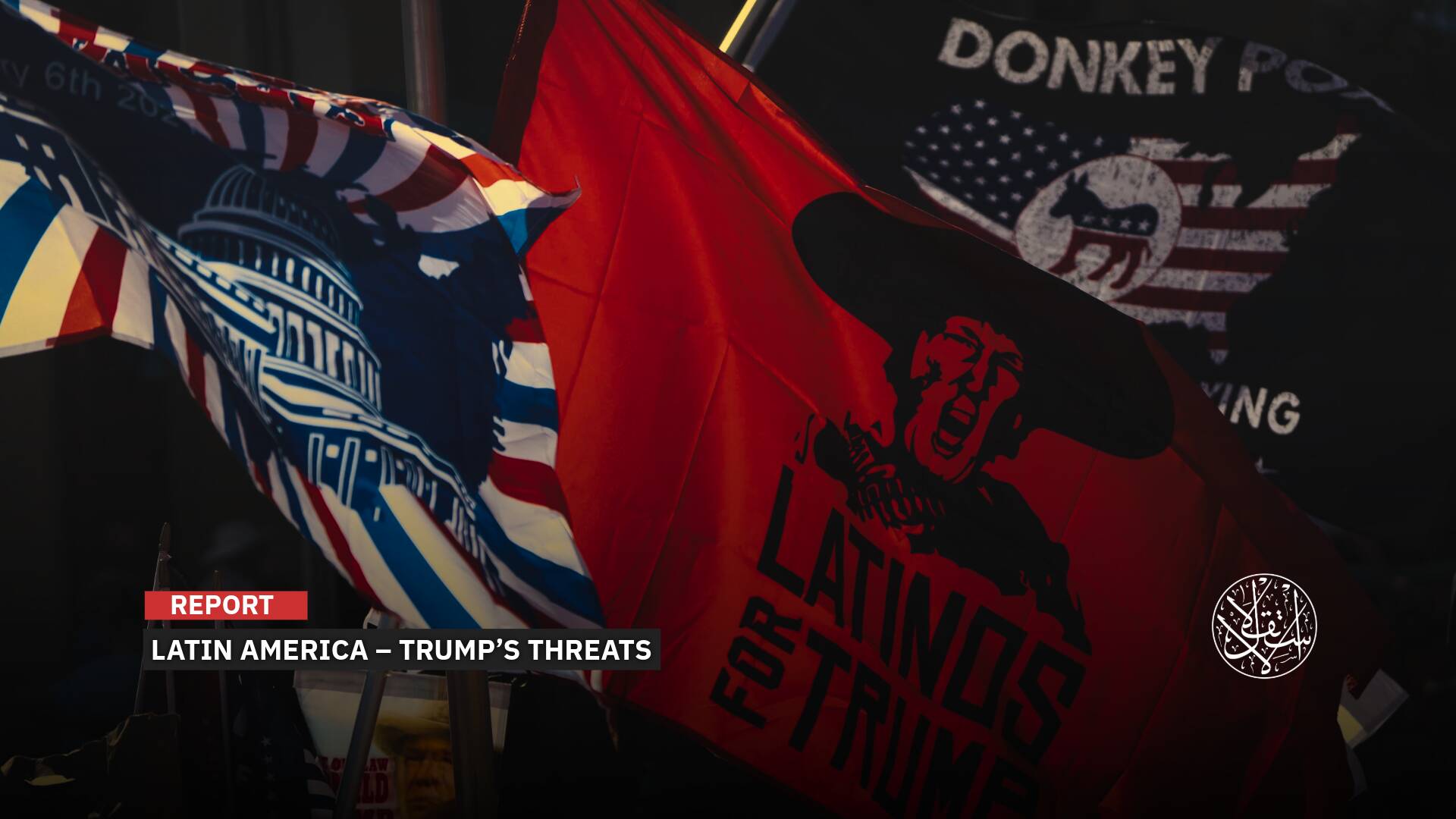"Dividing the Cake"; Turkish Center Monitors Change of European Countries Positions on Libya

A Turkish think tank described the change in the attitudes of some European countries on the Libyan situation as a change for the benefit and an effort to get a piece of oil and gas cake and rebuild what was destroyed by the war.
The Center for Middle East Studies (ORSAM) has criticized the positions of some EU countries for remaining silent about the aggressive attitude of Libyan coup leader Khalifa Haftar and his coup against Tripoli’s legitimate government in April 2019.
In a research paper, the center said that these countries did not play an active role in the Libyan theater after the 2015 political agreement "Sakhirat", following which a legitimate government was formed for the country, which has been in turmoil since its revolution against President Gaddafi on February 17, 2011.
European Ambiguity
"The environment of uncertainty and volatile balances in the political arena has prevented EU countries from supporting one party to some extent," ORSAM said.
"When the Palermo Conferences in November 2018 and Berlin in January 2020 failed to find constructive solutions to the crisis, "the legitimacy of EU relations with Libya’s actors is questionable."
"The Geneva negotiations in August 2020 did not result in a ceasefire prepared by the Joint Military Commission 5+5 on 23 October 2020, revealing the cover for the current phase," the center said.
From March to July 2021, high-ranking officials from European countries visited Libya’s new leadership and expressed their commitment to Libya’s state-building process.
"The motives of these countries remain unclear in taking a role in Libya’s new policies and their sincerity in their policies," ORSAM's Turkish research describes the situation.
Italy
According to researchers, Ismail Noman Tilji and Fouad Amir Shafqati: "Italy, which intervened in the Libyan crisis to protect its gains after the fall of Gaddafi, was in close contact with Libyan decision makers on illegal immigration, coastal security and energy."
"Although Italy seems to be treating the situation in Libya as a humanitarian crisis, it can be said that its main motivation is related to energy and the economy, according to the researchers.
"It can be said that Eni, an Italian energy company, and its interests have been the main focus of Italy's objectives and key priorities in Libya," they added.
"Since the company's area of activity is mostly in areas controlled by the Government of National Accord, the Libyan legitimate government led by Fayez al-Sarraj, Italy went to support reconciliation diplomatically," they said.
"In addition, Italy has been responsible for training and financing Libyan coast guard units to protect the coast and prevent illegal migration across the Mediterranean."
"The competition with France, which wants to increase its influence in Libya, and the desire to play an active role in resolving the Libyan crisis, has prompted Italy to lead the Palermo summit in 2018, which has not yielded satisfactory results or concrete solutions," they clarified.
"Italy welcomed the government of national unity, the product of the Libyan Political Dialogue Forum, after pursuing an active and balanced diplomatic policy between the warring parties after Haftar's attack on Tripoli in April 2019," according to Turkish researchers.
"In this, Italian Foreign Minister Luigi di Maio was the first member of the government among the EU countries to visit Abdelhamid Debiba and the government of national unity in Tripoli," they said.
The visit took place on March 21, 2021, during which De Mayo held meetings with Foreign Minister Leila al-Manshoush, President of the Presidential Council Mohammed al-Manfy, and his deputies Abdullah al-Lafi and Musa al-Kony, as well as Debiba.
The role of Italian companies from different sectors in Libya's reconstruction and the issue of migration was a headline during the talks.
On April 6, 2012, 15 days after De Mayo's visit, Italy’s new Prime Minister, Mario Draghi, made his first foreign visit to Libya and met with Dubai and al-Manfi in Tripoli.
"They addressed the issue from a non-geopolitical humanitarian perspective" on the issue of migration, Draghi said in his remarks after the meeting, and expressed his desire for continued cooperation between the two countries.
Developing trade relations and increasing investment are other topics discussed during Draghi's visit to Libya.
Negotiations are continuing between The Italian energy company Eni and the Libyan state company General Electricity Company to build and operate renewable energy plants in Fezzan, southern Libya.
Rome and Paris "rely on uranium resources in the region to produce nuclear energy or develop defense industries," according to researchers.
In an increase in interest in Libya, Italy reopened its consulate in Benghazi on April 29, 2021, and Foreign Minister De Mayo said the consulate was important not only to protect its interests in Tripoli, but also in Cyrenaica and Fezzan.
Dubai held bilateral meetings with Draghi on May 31, 2021, in Rome, in which he confirmed that Italian companies are the strongest partners in the reconstruction of Libya, and stated that Eni is an important partner in raising daily oil production to 4 million barrels.
"They consider Italy a "strategic partner" and showed that Rome, which has adopted a more neutral position in the past than France, has an important place in Libya’s reconstruction, Mohamed al-Manfi said the day before the Second Berlin Conference on June 23, 2021.
Turkey, which the transitional government describes as a sincere and reliable actor with Italy, is more likely to meet on common ground to work for Libya's stability and maintain the status quo than the rest of the EU, according to the Turkish Orsam Center.
It can be said that the Government of Dubai has given the two countries different roles in the context of the reconstruction of the country at the social, political and economic levels.
During his June 27 visit to Rome, Turkish Foreign Minister Mevlut Shaoyoglu said they would stay in touch with Italy for Libya to reach a lasting political solution.
This indicates that there are potential opportunities for cooperation between the two countries in the eastern Mediterranean region as well.
This is supported by the two sides' emphasis on good-neighbourly relations between the two countries in the eastern Mediterranean and Libya during italian Defense Minister Lorenzo Guerini's visit to Istanbul on July 13, 2021, and a meeting with his counterpart Khalousi Akar.
France
Both researchers Tilge and Schfaki point out that France was one of the most involved and effective European countries in political processes in Libya, but has intensified its position in recent years.
While Paris is pursuing economic, political and military objectives in Libya in line with its national interests, the most important element of its Libyan strategy is to create a vision of itself as a neutral foreign actor.
In line with this strategy, France is trying to gain influence by acting as a mediator between the Libyan parties, to be the one who has a say in Libya's future.
This is arguably a strategy to cover up its interventionist policies, as it is in this way, maintaining its impact on political processes in Libya without appearing as an interventionist actor.
France's direct interests in Libya include economic activities, energy and military technology exports, and take into account the interests of Total, the owner of investments in the Gulf of Sirte and the Al Hilal oil region under the control of Khalifa Haftar.
It treats Libya as a former colony from which it imports cheap and safe oil across the Mediterranean, according to the researchers, who said That France's "energy interests are the reason for its secret support for Haftar."
Then Defense Minister Jean-Yves Le Drian is the mastermind behind Khalifa Haftar's operations against alleged Islamist groups in eastern Libya after 2014.
Although France has shown neutrality in its attitude towards the Government of National Accord and Haftar after the Libyan political agreement, the helicopter crash in 2016 revealed France's policies in Libya, according to the Turkish Center.
"France has pursued dual policies in the name of effective diplomacy and has participated in operations against the legitimate government of national accord recognized by the United Nations," it said.
After taking office in 2017, President Emmanuel Macron hosted Fayez Al-Sarraj and Haftar's successor in the city of Lascelle Saint-Chloe near Paris, after which he announced a ceasefire.
But what happened next revealed the real intentions: Macron, who was talking about Haftar as a legitimate actor at every opportunity, supported Haftar with weapons and delivered them to him through Egypt despite the Security Council's arms embargo.
Indeed, Rafale warplanes sold by France to Egypt were used in several air operations between April 2019 and June 2020.
"However, as the actors changed after the Libyan Political Dialogue Forum, France changed its Libyan policies and demonstrated its support for national peace and reconciliation by establishing close relations with the head of the Government of National Unity, Debiba, and the president of the presidential council in Tobruk, al-Manfy," the Turkish Center said.
During al-Manfy’s visit to France on March 23, 2021, President Macron stated that he "has a debt to Libya and the Libyans" and expressed support for the government of national unity.
He stressed the need to remove Turkish and Russian troops from the country so that the operation could proceed as planned.
France also gave the green light to open a consulate in Benghazi, eastern Libya, just like Italy, after announcing on March 29th that it would open the French consulate in Tripoli after seven years.
During his visit to France, Debiba stressed in a joint press release issued after the meeting with Macron the importance of international efforts in recognizing the political legitimacy of the government of national unity, supporting the country's sovereignty and ending the presence of foreign powers there.
Debiba's meeting with the French Employers' Union and some French companies was another milestone in his visit to France.
On the other hand, it can be said that France, which participated in the Second Berlin Conference, was one of the main officials responsible for the end of the Conference without finding binding solutions.
Turkey's legitimate presence in Libya has been the subject of major debate, while important problems such as the budget crisis in the House of Representatives and the government of national unity, constitutional debates and Haftar's attempts to obstruct the Government of Dubai have been awaiting debate. As researchers see.
"Although the Berlin conference's decision on the criteria for candidacy would have reduced the votes in favor of the Libyan Political Dialogue Forum and paved the way for a parallel road map for Libya's political reconciliation process," they said.
"The failure of successive international and domestic summits has strengthened Haftar's strength, with the latter announcing the closure of the Algerian border, citing the terrorist attack in the south."
"Since this announcement came after France announced its desire to end operation Barkhane in Niger, Chad and Mali, this means that France may appoint new agents in the region by secretly supporting Haftar," the center said.
"Such a scenario could be interpreted as an inevitable strategy in which France would once again support Haftar's successor and the so-called Libyan National Army, if the political process was hampered," they added.
"This confirms the failure to condemn the war crimes committed by Haftar and his supporters in the country after the first Berlin conference, at the conference on June 23, 2021," they said.
On the other hand, the Turkish Center believes that France has maintained its anti-Turkish position in Libyan politics from the outset.
"Ankara is disturbed by Ankara's relations with the legitimate government in Tripoli, and Paris believes that this alliance is hampering its interests, and is therefore trying to prevent EU countries from also cooperating with Turkey on libya," he said.
In his opposition to maritime demarcation agreements between Turkey and Libya in November 2019, Macron called on Libya to agree with the European Union and recognize maritime borders that do not comply with international law with Greece and Greek Cyprus.
Greece
Researchers Tilji and Schfaki believe that Greece's policies toward Libya were formed after the Turkish-Libyan maritime demarcation agreement on November 27, 2019.
As a reflection of its rivalry with Turkey in the eastern Mediterranean, Greece supported Haftar after the agreement with the Government of National Accord and expressed its willingness to join all anti-Turkish political and economic alliances to block its gains.
In line with these policies, Mohamed al-Exile, Libya's then ambassador to Athens, was expelled and the president of the Tobruk-based Presidential Council was invited to Athens in December 2019.
"The maritime demarcation agreement signed between Turkey and the legitimate Government of National Accord is not a legitimate agreement," as said after the negotiations.
Greek Prime Minister Kyriakos Mitsotakis will then sign the draft Eastmid natural gas pipeline agreement on January 2, 2020, with his Greek and Israeli Cypriot counterparts.
In addition, operation Erini, carried out by the European Union to monitor the UN arms embargo, stands out in the context of Turkey's opposition, as it is easy to track and inspect arms shipments across the sea, as well as to Haftar, who is supported by land and air.
Targeting Turkey's assistance to the legitimate Government of National Accord also motivates Greece to actively participate in these operations.
"Greece's efforts are clear in re-extending the duration of the Erini operation, which ended on March 31, 2021," the researchers said.
"Although Greece has built its policies in Libya on Turkey's opposition, it has shown its willingness to turn a new page with new actors, leave aside issues of disagreement, and speed up diplomatic contacts with Libya," the center said.
"On April 6, 2021, Prime Minister Kyriakos Mitsotakis visited Libya and met with Prime Minister Debiba and then Mohamed al-manfy, who was expelled while ambassador to Athens," he said.
Mitsotakis, who opened the Greek consulate in Tripoli during his visit, stressed that they were against the maritime demarcation agreement between Turkey and Libya and that it should be abolished.
Like France, Mitsotakis stressed that the removal of foreign troops from the country is essential to progress in relations between Libya and the European Union.
On the other hand, Debiba stressed that Libya is open to all kinds of agreements taking into account the national interests of Both Greece and Turkey.
His Dundeas meetings in Benghazi show that Athens still keeps the current alternatives on the table, and that it has not abandoned its previous policies that harm Libya's stability.
Finally, Greece's main priority is to keep the Government of Dubai away from Turkey using its limited influence in the eastern Mediterranean, according to the Turkish Center.
"As Greece tries to tarnish Turkey's credible image in Libya, Greece sees the formation of a pro-Turkish government in Libya as a serious threat to its economic interests in the eastern Mediterranean."
Germany
Germany was reluctant about NATO operations against the French-led Gaddafi regime in 2011 and made a proposal to expand sanctions.
Concerns about illegal migration from sub-Saharan Africa to Libya and then Europe have prompted Germany to mediate and neutralize Libya, taking into account the economic and social implications of the migration crisis within the country.
Angela Merkel's administration, which sees peace and stability in Libya as in Germany's interests, is deeply disturbed by Macron's aggressive policies in Libya.
She strongly criticized France's support for Haftar as a military option because it hampered the reconciliation process and was one of the main factors that triggered the migration crisis.
"Merkel referred to France as an obstacle to the EU in establishing a common policy on Libya, but the competition for EU leadership has made Germany and France more active in Libya," according to Turkish writers.
Leaders of Turkey, Italy, Egypt, the UAE, the Arab League, the African Union and EU representatives, the five members of the UN Security Council, attended the summit to end the conflict that has been going on since April 2019 and find lasting solutions to the crisis.
Participating countries have committed themselves not to interfere in armed conflicts in Libya and not to interfere in Libya's internal affairs.
The Joint Military Commission 5+5, which paved the way for a permanent ceasefire on October 23, 2020, was also formed as a result of the Berlin Conference.
In fact, the continued attacks by Haftar's forces on Tripoli after the conference and the continuation of foreign mercenary shipments by participating countries raised questions about the applicability of the resolutions taken.
In light of a report entitled "Lack of Western Orientation" issued at the Munich Security Conference, in which it mentioned the cessation of post-revolutionary massacres, Merkel contacted Dubai on March 5, 2021 and congratulated him.
Germany aims to carry out important projects by many German companies in Libya, particularly Siemens.
The third Economic Expert Forum was held in Tripoli on March 31, 2021, with the participation of high-ranking government officials such as Libyan Economy Minister Mohamed Al-Hawij, Chairman of the Board of Directors of the National Oil Corporation and Director of the Libyan Electricity Company.
Given its consistent policies towards Libya since 2011, Germany is gaining the confidence of the Government of National Unity.
Germany is expected to have a speech as a representative of EU countries in the tense circumstances that may arise from the December 2021 elections and discussions on them, according to researchers Tilji and Schwafifi.
They added: "Germany invited the exile, Debba and the engraved Foreign Minister to the meetings of the Second Berlin Conference, and the statement of the two meetings confirmed peace and stability in Libya, but the meeting was not enough to clarify some important things.
What happened in the city of Tarhuna and the mass graves where they were found were overlooked, and Haftar's human rights violations were not addressed.
Germany has also paved the way for the postponement of talk of Libya's most important problems by remaining silent to countries trying to portray Turkey's military presence in the country as a major problem.
Malta
According to the Centre, Malta has been subjected since the beginning of the conflict in Libya to a large influx of illegal migration due to its location on the Mediterranean Sea.
Malta, the first stop for refugees wishing to cross into Europe via the Mediterranean, has therefore developed its Libyan policies on the basis of preventing the flow of illegal migration.
However, as Libya’s civil war escalated, indifferent policies for Italy and France prompted Malta to use refugees as a trump card against the European Union.
Malta took its place as part of a joint statement published by the foreign ministers of Turkey and Libya on August 6, 2020 after it went on to radically change its policies in its rapprochement with the legitimate government of Fayez al-Sarraj and Turkey.
In the statement, States expressed concerns about the problem that illegal immigration might cause, not only to the European Union but also to Libya, and that Libya's southern border must be strengthened.
However, about a month later, Maltese Foreign Minister Evarist Bartolo criticized Libya's policies for Turkey and Russia during his visit to Athens on September 8, 2020.
Erdogan and Putin are responsible for the Refugee Crisis in the Mediterranean, which the researchers saw as a sign of Malta's rapid change of attitude, he said.
Robert Abella held bilateral meetings with his counterpart Abdelhamid Debiba, as well as with Libyan foreign and interior ministers in Tripoli on April 5, 2021.
In the joint statement issued after the meetings, he explained that attempts to reopen the Libyan consulate in Malta had begun, that they would operate as soon as possible, and that flights would begin between the two countries.
On the other hand, Debiba said that many of the meetings hosted by Malta, which he sees as an important economic partner, have contributed significantly to Libya's stability.
He said he would make efforts to develop trade and political relations between the two countries. Malta, just 350 km from Libya, stands out as one of Libya's powerful trading partners in the region.
As a participant in the Berlin Conference, Malta could be seen as a supporter of the country's future national reconciliation process.
It is one of the neighbouring countries most likely to be affected by internal unrest caused by military alternatives such as Khalifa Haftar and the wave of immigration resulting from the disruption of the electoral process.
Summary
"Significant changes are being made in the policies of Greece, Italy and France in Libya after the government of national unity," said researchers Tilji and Shivfaki.
Although Malta and Germany appear to be taking a more neutral stance, they share the general view in the EU, and consider migration and related security issues to be among their key priorities.
On the other hand, they aim to get their share of the "cake" by participating in Libya’s reconstruction process.
As an important supplier of gas and oil to EU countries, Libya is an opportunity to diversify their natural gas sources rather than relying entirely on Russia.
To increase their share of gains in Libya during the transition process, countries that are close to Libya’s new actors on pretexts such as migration, economic interests and anti-Turkey are taking balanced and cautious steps with UN solutions.
The three countries, which agree on the removal of foreign powers from the country, offer opportunities for support and cooperation to Libya's temporary actors on border security and the flow of illegal migration to Europe across the Mediterranean.
Countries opposed to the maritime demarcation agreement signed between Turkey and the Government of National Accord see Turkey's presence in Libya as a long-term threat.
It therefore adopts a speech aimed at clamping down on Turkish influence in Libya and distorting its image and reputation among local actors and eliminating its gains.
In the face of this, Libya’s important officials, such as Prime Minister Debiba, al-Manfy, president of the Presidential Council, and Libya's Supreme Council president Khaled Mashri, distinguish Turkey's role in the country from Russia and other foreign powers.
They describe Turkey as a country operating within the framework of international conventions.
It is important that actors that prioritize civil and democratic processes in the country's politics, particularly the Government of National Accord in Libya, work with European countries and cooperate with constructive actors in this regard.
However, we should not forget that the foreign policy priorities of these actors are shaped by their own interests rather than those of the State for which they work. According to the researchers.
Libya must therefore be careful and act in line with its own priorities while cooperating with European actors.
On the other hand, it can be said that actors like the UAE and Egypt can play a role in building Libya if they put an end to their destructive activities in the country and start a constructive agenda.
Finally, it must be emphasized that Turkey is the most important ally in libya's stabilization process and the establishment of a political system within democratic institutions.


